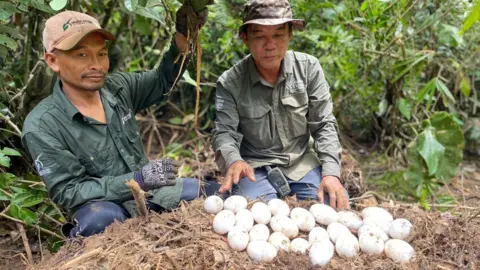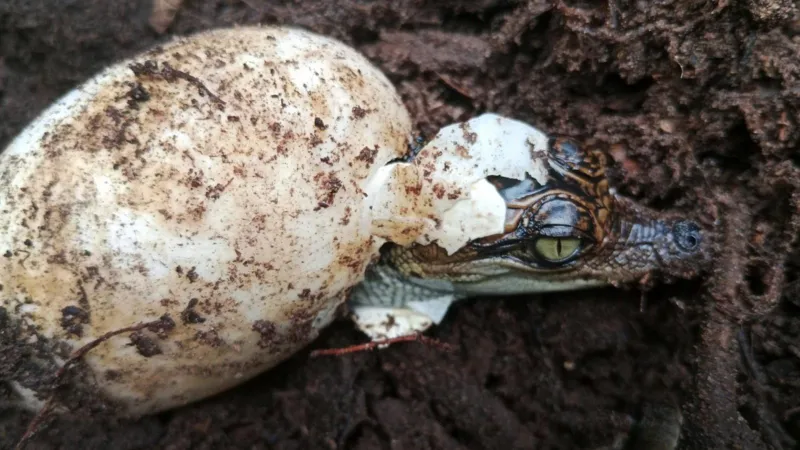Cambodia has celebrated the hatching of 60 baby Siamese crocodiles, marking a record for this endangered species in the 21st century, according to conservationists.
Described as a “real sign of hope” by experts, this milestone comes after more than two decades of efforts to revive the population of these reptiles in the remote Cardamom Mountains.
The olive-green freshwater Siamese crocodile, recognizable by its distinctive bony crest at the back of its head, can grow up to 3 meters (nearly 10 feet) in length.
In May, locals discovered five nests, and by the end of June, the baby crocodiles had hatched, conservationists reported on Thursday.
Once widespread across much of Southeast Asia, Siamese crocodiles have become critically endangered due to decades of hunting and habitat loss. Currently, only about 400 remain in the wild, with the majority residing in Cambodia.
“The hatching of 60 new crocodiles is a tremendous boost,” said Pablo Sinovas, who heads the Cambodia program for the conservation group Fauna & Flora.
He noted that this success is a significant encouragement for “collaborative conservation efforts” involving conservationists, local NGOs, and the Cambodian government.

The species was thought to be extinct until it was rediscovered in Cambodia in 2000.
Mr. Sinovas stated that Fauna & Flora has collaborated with local officials to establish a program for breeding Siamese crocodiles in captivity before releasing them into suitable habitats across the Cardamom Mountains.
Local community wardens regularly patrol the mountains to ensure the safety of the released crocodiles.
Since 2012, the program has successfully reintroduced 196 Siamese crocodiles into the wild.
In May, locals discovered nests in an area where the crocodiles had not been previously released, indicating that the species had been breeding in their natural habitat.
The conservation team then dispatched personnel to protect the nests around the clock until all the eggs hatched, resulting in the birth of 60 baby Siamese crocodiles.
BBC

